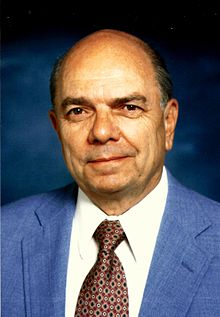
Allen had done a post-doc in the early 1960’s with Carl Rogers working on the famous Wisconsin Project, which had applied client-centered therapy (later relabelled as person-centered therapy) to work with clients with psychotic processes. With Sol Garfield, he began editing the Handbook of Psychotherapy and Behavior Change, whose first edition was published in 1971, and which was – and still remains – the standard reference for psychotherapy research. In the early 1990’s Allen and Sol asked Les Greenberg to do a review of research on humanistic psychotherapies for the fourth edition of the Handbook. Humanistic psychotherapies had not been covered since the first edition, so this was a big step, and a potentially an important moment for this branch of psychotherapy. It was also the origin of the Humanistic-Experiential Psychotherapy (HEP) meta-analysis project, still continuing 30 years later. We set to work meta-analyzing pre-post effect sizes for all 37 HEP outcome studies we were able to find. (At that time, we were opposed to comparative outcome research.) Somewhat anxiously, we submitted the draft to Allen and Sol. They knocked it back, insisting that we analyze the controlled (vs. no-treatment controls) and comparative (vs. other treatments) outcome studies. We swallowed hard, held our noses, and analyzed the controlled and comparative outcome effects, producing the (for us) startling result of large controlled effects and null (d = 0) comparative effects. We had obtained a no difference, “dodo bird” effect. We submitted the revision to Allen and Sol, who knocked it back again, complaining that we had pooled comparative effects involving both CBT and psychodynamic therapies; how did we know that CBT wasn’t more effective that HEPs? With great trepidation, we ran the comparison between CBT and HEPs; we found CBT to be slightly but nonsignificantly more effective than person-centered, but also tantalizing indications that EFT might more effective than CBT. At that point, much to our relief, Allen and Sol accepted the chapter.
Years later Allen was visiting Toledo, where his son was teaching in the School of Education at the University of Toledo, and he and I arranged to meet up. He told me that Sol had wanted to reject our humanistic therapy review chapter from the Handbook; he had insisted on keeping it in the book. Given the precarious state of these therapies in the early 1990’s, I think that the history of the humanistic-experiential therapies would be quite different today if Allen had not come our defense at that point. We owe him a debt of gratitude.
As another testament to his integrity, I want to point to his outspoken advocacy of bringing scientific attention to the important role of religious faith and involvement in religious communities as factors supporting mental health and psychological well-being, published in his ground-breaking paper, “Psychotherapy and religious values.,” in the Journal of Consulting and Clinical Psychology (1980). I remember him presenting a version of this paper at a conference of the Society for Psychotherapy Research around that time. He must have known that it was not a popular topic with psychotherapy researchers at that point in history, and would possibly lower the estimation that many of his fellow researchers had of him. Nevertheless, it was a testament to his scientific integrity and his religious faith that he went ahead to make his case regardless of the consequences. As another person of faith, I personally felt validated and inspired by his attempt to combine the spiritual with the scientific.
Over the past 20 years, various folks in the Society for Psychotherapy Research have reached out to Allen, encouraging him to come to meetings; however, the fact is that he was happy with his mission work (he was a prominent figure in the Church of the Latter Day Saints) and with his family. Therefore, it was heartening to read the moving account by Michael Barkham (echoed by Wolfgang Lutz and Louis Castonguay) of his recent involvement in the 7th edition of the Handbook (published in 2021). In order to write the preface for it, Michael reports that Allen carefully read and took detailed notes on all 800 pages.
Right now in my imagination I’m picturing him reading the latest version of the HEP chapter in the book he and Sol Garfield founded, pleased and smiling at the nearly 300 outcome studies of HEPs now included in our reviews, feeling glad that he put his faith in us 30 years ago, just when we needed that validation. Thank you, Allen! Your integrity and faith live on in us. You are an important piece in the history of psychotherapy research, and one of my personal validating elders (or “angels” or “saints” if you prefer).
For more on Allen Bergin and his life:
https://en.wikipedia.org/wiki/Allen_Bergin
Lambert, M. J., Gurman, A. S., & Richards, P. S. (2010). Allen E. Bergin: Consummate scholar and charter member of the Society for Psychotherapy Research. In L. G. Castonguay, J. C. Muran, L. Angus, J. A. Hayes, N. Ladany, & T. Anderson (Eds.), Bringing psychotherapy research to life: Understanding change through the work of leading clinical researchers (pp. 101–111). American Psychological Association. https://doi.org/10.1037/12137-009
No comments:
Post a Comment